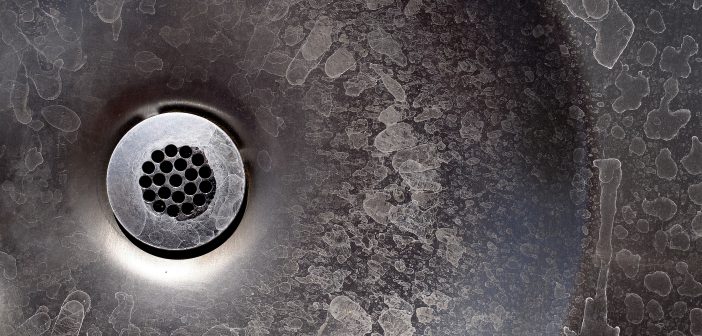Ever notice how soap seems to lather poorly, leaving a filmy residue on your skin? Or perhaps your dishes emerge cloudy after a seemingly thorough wash? These could be signs of hard water lurking in your pipes. That said, this guide empowers you to take control. It will equip you with the knowledge to soften your hard water, saving you money and frustration in the long run.
What Is Hard Water?
Hard water is water that has absorbed high levels of dissolved minerals, mainly calcium and magnesium, as it passes through various rock formations. These minerals naturally occur in the environment and become part of the water’s composition during its underground journey. Dealing with hard water can be a real hassle. It makes soap less effective and can leave your appliances all gunked up. That’s why many homeowners turn to water refining systems from reputable companies like Crystal Water. These systems work to reduce the mineral content, improving the overall quality of your water.
Characteristics Of Hard Water
Hard water is easily recognizable by several distinct characteristics that arise due to its high mineral content. These telltale signs serve as indicators of the presence of hard water and its potential impact on household appliances and fixtures.
- Mineral Content: Hard water typically contains more than 60 milligrams per liter (mg/L) of calcium carbonate. The higher the concentration of these minerals, the harder the water is. Water hardness is often measured in grains per gallon (GPG), with 1 GPG equivalent to 17.1 mg/L of calcium carbonate.
- Taste: Hard water can have a distinctive taste, often described as slightly metallic or bitter. This taste is due to the dissolved minerals, especially if the water has high levels of iron along with calcium and magnesium.
- Feel: When washing with hard water, you may notice that your skin feels dry and itchy, and your hair may feel rough and less manageable. This is because hard water leaves a residue of minerals that can prevent soaps and shampoos from lathering effectively and rinsing off completely.
Understanding these characteristics is essential for managing hard water issues in your household.
Effects Of Hard Water
From gunking up appliances to making hairwashing a battle, its effects are far-reaching. Getting a grasp on these hard water effects sheds light on why softening solutions and regular upkeep matter so much.
Scale Buildup
One of the most noticeable effects of hard water is the formation of scale. When hard water is heated, calcium and magnesium precipitate out as solid deposits, often seen as white or off-white crusty buildup. This scale can accumulate in pipes, water heaters, and household appliances such as dishwashers and washing machines.
As time ticks by, that pesky scale accumulation can seriously cramp the efficiency of your trusty appliances, driving up energy guzzling and risking damage. Take your water heater, for instance – that chalky buildup forces it to work overtime to get your H2O piping hot, sending utility bills soaring and cutting its lifespan short.
Reduced Soap Efficiency
Hard water reduces the effectiveness of soaps and detergents. Calcium and magnesium ions react with soap to form soap scum, a sticky and insoluble residue. This reaction means that more soap or detergent is needed to achieve the same cleaning power in hard water conditions. In laundry, hard water can leave clothes looking dingy and feeling rough. Additionally, soap scum can accumulate on bathroom fixtures, tiles, and shower doors, creating unsightly deposits that are difficult to clean.
Skin and Hair Issues
Bathing in hard water can affect skin and hair. The soap scum formed in hard water can remain on the skin, causing it to feel dry and irritated. This can exacerbate conditions like eczema and dermatitis. Similarly, hair washed in hard water may feel sticky, dull, and lifeless. The minerals in hard water can strip natural oils from the hair, making it more prone to dryness and breakage. Using more shampoo and conditioner is often necessary to counteract these effects, leading to increased product usage and cost.
Staining
Hard water can cause staining on various surfaces. For example, it can leave mineral deposits on glassware, making them appear cloudy even after washing. Bathroom fixtures and sinks can develop reddish-brown stains due to iron content in hard water. These stains can be challenging to remove and require specialized cleaning products. In addition, hard water can contribute to the yellowing of fabrics over time, especially white clothes, making them look aged and worn.
Plumbing Problems
Hard water leaves behind a stubborn gift that keeps on giving – scale buildup. Over time, this crusty accumulation inside pipes starts squeezing water flow, leading to that dreaded weak shower pressure. In the worst cases, it can completely clog things up, forcing you to shell out big bucks for repairs or replacements. The narrowing pipes also put extra strain on pumps and other plumbing parts, potentially causing breakdowns and shortening their lifespan. It’s a vicious cycle of mineral mayhem.
Higher Energy Bills
Hard water really takes a toll on water heaters and other appliances’ efficiency. That scale buildup acts like a cozy little insulating blanket, making it harder for heat to do its job in the water heater. Cue more energy being sucked up just to get the water toasty, leading to skyrocketing utility bills. Over time, all that extra energy guzzling can put a serious dent in your household budget. Hard water’s stubbornness doesn’t come cheap.
Appliance Longevity
Hard water can reduce the lifespan of household appliances. Appliances that use water, such as dishwashers, washing machines, and coffee makers, can suffer from internal scale buildup. This buildup can lead to reduced performance and efficiency, causing these appliances to work harder and wear out faster. Frequent repairs or early replacement of appliances can be a significant financial burden for homeowners.
Environmental Impact
In areas plagued by hard water, the increased use of soaps, detergents, and cleaning agents becomes a necessity. However, this surge in demand for such products carries environmental implications. Their production, packaging, and eventual disposal contribute significantly to pollution and waste generation.
Moreover, the higher energy consumption associated with hard water can amplify a household’s carbon footprint, exacerbating the negative impact on the environment. It’s a cycle where hard water necessitates more cleaning products, leading to more waste and emissions – a scenario that poses a substantial ecological concern.
Methods To Soften Hard Water
Hard water can be a real nuisance around the house, leaving behind unsightly mineral buildup and making appliances work overtime. But don’t worry, here are simple solutions to soften that H2O and keep your home running smoothly.
Ion-Exchange Water Softener
Ion-exchange water softeners are a widely used method for treating hard water. These systems utilize resin beads charged with sodium ions. As hard water flows through the softener, calcium and magnesium ions, which cause hardness, are exchanged for sodium ions on the resin beads. This process effectively removes the hardness from the water, making it softer and more suitable for household use. The primary benefits of ion-exchange water softeners include improved soap efficiency and the prevention of scale buildup in pipes and appliances.
Reverse Osmosis (RO)
Reverse osmosis is a water purification method that removes a wide range of impurities, including the calcium and magnesium ions responsible for water hardness. In this process, water is forced through a semipermeable membrane, which filters out these minerals and other contaminants. The result is highly purified water that is soft and safe for consumption. It truly shine when it comes to providing pristine drinking water, as they possess the ability to remove a wide range of impurities beyond just hardness.
Chelating Agents
Chelating agents have emerged as invaluable tools, offering solutions to a wide range of challenges. These specialized compounds possess the remarkable ability to form stable complexes with metal ions, unlocking a myriad of applications that enhance efficiency, mitigate formation damage, and optimize overall performance. From dissolving mineral scales and formations to mitigating formation damage and controlling iron precipitation, these specialized compounds offer a multifaceted approach to optimizing well performance and enhancing operational efficiency.
Magnetic or Electronic Descalers
Magnetic or electronic descalers are devices designed to reduce scale formation by altering the properties of calcium and magnesium ions in the water. These devices create a magnetic or electric field around the water pipe, which changes the behavior of the hardness minerals, preventing them from forming scale deposits. One of the main advantages of magnetic or electronic descalers is their ease of installation and low maintenance requirements. Additionally, they do not involve the use of chemicals, making them an environmentally friendly option.
Lime Softening
Lime softening is a popular large-scale water treatment method, especially for municipal water systems. This process adds lime (calcium hydroxide) to the water, causing calcium and magnesium ions to precipitate out as carbonate compounds. The resulting precipitate can then be filtered out, effectively reducing water hardness. This method excels at treating vast water volumes and tackling high hardness levels.
Distillation
Imagine a process that mimics nature’s way of purifying water through the rain cycle. Distillation does just that! It involves heating water until it turns into steam, leaving behind most minerals and impurities. This steam is then cooled and condensed into a pristine container, producing extremely pure water free from hardness-causing culprits like calcium and magnesium. Distillation is a powerful purification method, effectively removing a wide array of contaminants. This makes it suitable for both softening hard water and achieving ultra-pure levels for specialized applications.
Boiling
Boiling offers a straightforward solution to temporarily tame hard water’s stubbornness. As the water dances to a rolling boil, the calcium carbonate, responsible for that temporary hardness, gracefully precipitates out, leaving the water softer and more compliant. This uncomplicated process requires no fancy gadgets, making it an accessible option for small-scale needs.
Preventing Hard Water Buildup
By implementing a few strategic practices, homeowners can effectively manage and minimize the impact of hard water, ensuring a smoother, more efficient home environment. Here are some ounces of prevention that you can try:
Routine Household Practices
Consistent cleaning is your secret weapon against hard water buildup! Regularly wipe down appliances and fixtures to keep those minerals at bay. If you let them linger, they turn into nasty deposits that take forever to scrub off. Here’s the good news: you don’t need fancy cleaners. There are some awesome natural solutions lurking in your pantry. Vinegar, with its natural acidity, is a champ at dissolving mineral deposits. Just soak your showerhead or faucet in some vinegar for a while, and watch those buildups disappear! Baking soda works its magic as a gentle yet effective scrub. Sprinkle it on your sink, tiles, or any stubborn spots, and buff away those white monsters without scratching the surface.
Protective Coatings
Applying protective coatings to fixtures can significantly reduce the adherence of hard water minerals. These coatings create a barrier that makes it harder for minerals to stick to surfaces like faucets and showerheads. Follow the manufacturer’s instructions carefully when applying these coatings to ensure they are effective. Regular maintenance of these coatings is crucial; inspect them periodically to ensure they are intact and reapply as necessary. In high-use areas like kitchens and bathrooms, more frequent reapplication might be required to maintain protection against mineral buildup.
Water Softening Systems
Installing a water softener is a highly effective way to reduce water hardness before it affects your home. A whole-house water softening system treats all the water entering your home, thereby protecting all fixtures and appliances from mineral buildup. For those who may not want to invest in a whole-house system, a point-of-use water softener are a viable alternative. These smaller systems can be installed on specific fixtures or appliances, such as a kitchen sink or washing machine, to directly address hard water problems in targeted areas.
Regular Appliance Maintenance
Appliances need regular TLC to combat hard water’s wrath. Coffee makers, dishwashers, and washing machines often have descaling cycles or cleaning routines prescribed. Diligently following these manufacturer-recommended regimens helps ward off mineral buildup inside, keeping your appliances running smoothly. Inspecting and cleaning filters, nozzles, and hoses regularly also prevents clogs, ensuring your trusty household helpers continue performing at their peak.
Monitoring and Testing
Keeping tabs on those hard water levels is key to nipping mineral mayhem in the bud. Regularly testing your H2O lets you monitor hardness fluctuations and tweak your softening or treatment tactics as needed. Handy testing kits offer swift and reliable readings. Staying vigilant about those levels allows you to tackle any trouble before it escalates into a full-blown battle royale with scale.
Educating Household Members
Educating everyone in the household about the importance of preventing hard water buildup can make a significant difference. Ensure all members are aware of the signs of hard water and understand the preventative measures they can take. Encourage proper usage and maintenance of appliances and fixtures to minimize hard water impact. By fostering awareness and proactive habits, you can collectively maintain a more comfortable and efficient home environment.
Conclusion
Feeling like you’ve finally cracked the code on hard water? That’s right! Now you’re ready to take charge and banish those stubborn mineral deposits. Remember, the best solution depends on your budget and what works for you. Thinking big? A water softener might be the answer for softer water throughout your entire house. Looking for targeted solutions? Vinegar for cleaning and baking soda for laundry can be your new best friends. Armed with this knowledge, you can say goodbye to hard water woes and hello to smoother, easier to manage water in your home.





